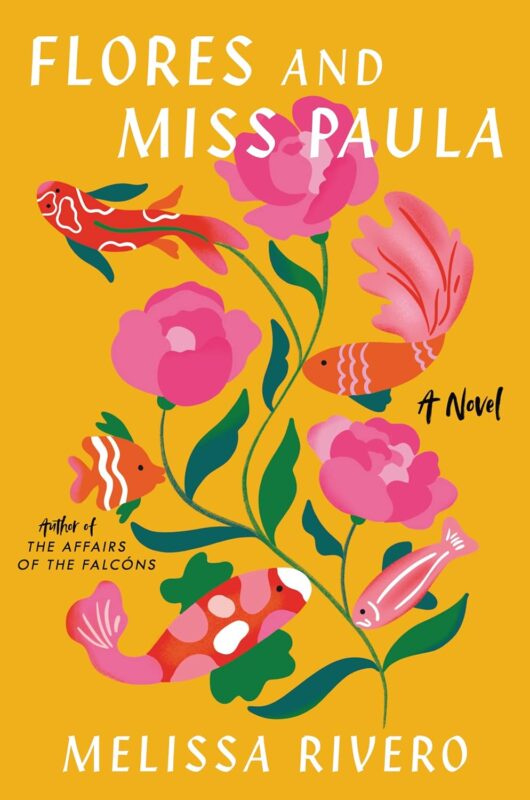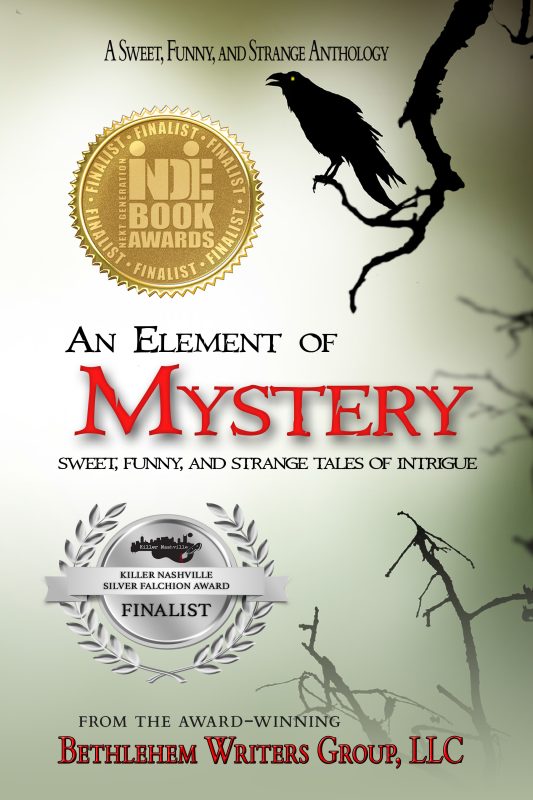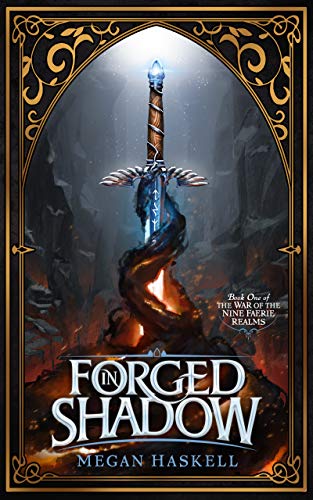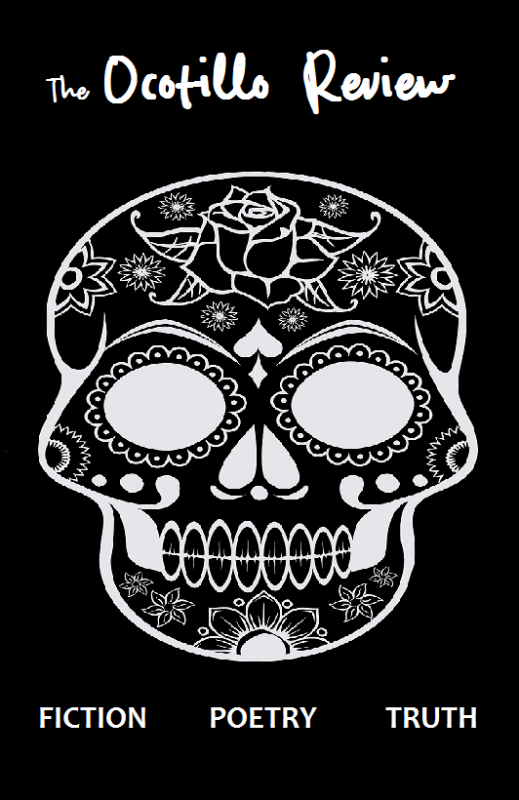Advice to Myself as a Newbie Author
January 22, 2008 by A Slice of Orange in category Archives tagged as Advice to Myself as a Newbie Author, Jennifer Blakeby Shauna Roberts
http://ShaunaRoberts.blogspot.com
Today’s Guest: Jennifer Blake
Since publishing her first book at the age of twenty-seven, New York Times bestselling and award-winning author Jennifer Blake has gone on to pen more than sixty historical and contemporary romances. She brings the seductive passion of the South to her stories, reflecting her seventh-generation Louisiana heritage. Jennifer lives with her husband in northern Louisiana.
Jennifer, if you could travel back in time to before you were first published, what advice would you give yourself?
 1. Accept that the type of book sold to your first editor is what she will expect to see from you for subsequent contracts. Don’t change to a different time period, setting, or genre without prior consultation. Case in point: My first two book sales were to Fawcett Gold Medal for their Gothic romance program, and both had historical settings. Then a friend who had researched Hurricane Camille and written a portion of a contemporary mystery-suspense story around it asked that I collaborate with her and publish the book under my name with a 50/50 split of the proceeds. I rewrote her manuscript and submitted it. (This, sad to say, was before query letters and partial submissions.) It was rejected out of hand. A contemporary Gothic was not what Fawcett wanted or expected from me.
1. Accept that the type of book sold to your first editor is what she will expect to see from you for subsequent contracts. Don’t change to a different time period, setting, or genre without prior consultation. Case in point: My first two book sales were to Fawcett Gold Medal for their Gothic romance program, and both had historical settings. Then a friend who had researched Hurricane Camille and written a portion of a contemporary mystery-suspense story around it asked that I collaborate with her and publish the book under my name with a 50/50 split of the proceeds. I rewrote her manuscript and submitted it. (This, sad to say, was before query letters and partial submissions.) It was rejected out of hand. A contemporary Gothic was not what Fawcett wanted or expected from me.
The story was published later by Ace Books as Storm at Midnight under the pen name of Elizabeth Trehearne and now sells for $99.99 as a collector’s item due to its low print run. Still, it was a lesson learned the hard way.
2. Don’t assume that being a New York agent or editor automatically confers insight into what’s happening in the marketplace. A couple of years after I published my first book, Kathleen Woodiwiss came out with The Flame and the Flower. On reading it, I was enthralled. I immediately contacted my former agent suggesting that my next book be a historical romance. He replied, “Don’t waste your time. The historical romance is as dead as the dodo.â€
What I should have done was send him a copy of Woodiwiss’s book as an example of what I meant. Instead, I assumed he had some kind of inside information indicating there was no market for another such story. The fact was, he didn’t know a new genre was being born, one radically different from the older, male-oriented historical sagas he had in mind. As an avid reader scanning the shelves in the depths of country, I had a better idea of what was going on than he did while ensconced in his New York office. He—and much of the rest of the NY publishing community—didn’t catch up until early 1975 when I was suddenly asked to do a proposal for a historical romance after all.
3. Watch the market, read in the genre, and pay attention to your gut instinct concerning where it’s headed. In the early 1990s, I did in-depth research on a major Civil War campaign in Louisiana for a dramatic historical romance with that setting. When I sent the proposal to my editor, she asked to see something else, saying Civil War romances were a hard sell. Reluctantly, I gave her another story idea. If I’d insisted on doing my Civil War epic, it would have hit the shelves at the same time as Scarlett—and just as Kathryn Falk of Romantic Times Magazine was very kindly telling everyone that I should have been chosen to write this sequel to Margaret Mitchell’s Gone with the Wind.
4. Establish a story idea file and capture in it every single idea that comes your way. Stories are like spirits: They fade away if ignored, and you can never depend on them to drift back into your mind again.
 5. Don’t be intimidated by editors and agents because you think they operate on a higher, more sophisticated plane. They are just people who have worries and fears, hopes and dreams, wardrobe issues and bad hair days like the rest of us. Offer them the appreciation and cooperation that will make their lives easier, and they’ll do the same in return.
5. Don’t be intimidated by editors and agents because you think they operate on a higher, more sophisticated plane. They are just people who have worries and fears, hopes and dreams, wardrobe issues and bad hair days like the rest of us. Offer them the appreciation and cooperation that will make their lives easier, and they’ll do the same in return.
6. Never send an editor more than one book proposal at the time unless you’re prepared to write any story she chooses. Invariably, you’ll be stuck writing the story you liked least.
7. Invest in quality stationery and take the time to send thank you notes for any special consideration shown to you as a writer—for interviews, speaking gigs, book signings, appearances arranged for jobber events, an especially beautiful cover done by the art department, a great blurb written for your book, and so on. The art of the handwritten thank you note is so nearly dead that the novelty of the gesture will make it memorable.
8. Don’t let any of the irritations or disasters that come your way in publishing become personal. It’s a business and you should be professional about it. Though it may be highly satisfying to fire off a hot email or letter in response to some mangling of your work, blow to your career or meddling in your non-writing life, you will always regret it.
9. Nothing you write will ever be perfect; it’s an impossible goal. Do the best you can during the moment at hand, and that will be good enough.
10. Writing is an art for which you must have talent. It’s also a craft that’s learned by studying and endless, endless practice. Nothing you write is ever wasted; it always adds to your knowledge of how to draw people into the heart of your story, how to persuade them to turn the pages of your books. Don’t write just to sell, then, or because you think it’s an easy career. Write for the music of the words slipping through your mind. Write for the magic of being able to invite readers into the story world you’ve created, for the wonder of making them see what you see, hear what you hear, feel what you feel. Write for the joy.
✥✥✥✥✥
Visit Jennifer Blake’s Website at http://www.jenniferblake.com/ and her blog at http://jenniferblake.com/journal/. Her book Guarded Heart will be available February 1 at all major bookstores and can be ordered online from Amazon.com and Barnes & Noble.
Interested in learning more about Jennifer? An interview with her appears today at my blog, Shauna Roberts’ For Love of Words.
1 0 Read moreAffiliate Links
A Slice of Orange is an affiliate with some of the booksellers listed on this website, including Barnes & Nobel, Books A Million, iBooks, Kobo, and Smashwords. This means A Slice of Orange may earn a small advertising fee from sales made through the links used on this website. There are reminders of these affiliate links on the pages for individual books.
Search A Slice of Orange
Find a Column
Archives
Featured Books
FLORES AND MISS PAULA
Forgive me if I failed you. Remember that I always loved you.
More info →AN ELEMENT OF MYSTERTY: SWEET, FUNNY, AND STRANGE TALES OF INTRIGUE
Dare you read our latest Sweet, Funny, and Strange® Anthology?
More info →FORGED IN SHADOW
In the chaos of war, not all heroes shine. Some must rise from shadows to claim the light.
More info →Newsletter
Contributing Authors
Search A Slice of Orange
Find a Column
Archives
Authors in the Bookstore
- A. E. Decker
- A. J. Scudiere
- A.J. Sidransky
- Abby Collette
- Alanna Lucus
- Albert Marrin
- Alice Duncan
- Alina K. Field
- Alison Green Myers
- Andi Lawrencovna
- Andrew C Raiford
- Angela Pryce
- Aviva Vaughn
- Barbara Ankrum
- Bethlehem Writers Group, LLC
- Carol L. Wright
- Celeste Barclay
- Christina Alexandra
- Christopher D. Ochs
- Claire Davon
- Claire Naden
- Courtnee Turner Hoyle
- Courtney Annicchiarico
- D. Lieber
- Daniel V. Meier Jr.
- Debra Dixon
- Debra H. Goldstein
- Debra Holland
- Dee Ann Palmer
- Denise M. Colby
- Diane Benefiel
- Diane Sismour
- Dianna Sinovic
- DT Krippene
- E.B. Dawson
- Emilie Dallaire
- Emily Brightwell
- Emily PW Murphy
- Fae Rowen
- Faith L. Justice
- Frances Amati
- Geralyn Corcillo
- Glynnis Campbell
- Greg Jolley
- H. O. Charles
- Jaclyn Roché
- Jacqueline Diamond
- Janet Lynn and Will Zeilinger
- Jaya Mehta
- Jeff Baird
- Jenna Barwin
- Jenne Kern
- Jennifer D. Bokal
- Jennifer Lyon
- Jerome W. McFadden
- Jill Piscitello
- Jina Bacarr
- Jo A. Hiestand
- Jodi Bogert
- Jolina Petersheim
- Jonathan Maberry
- Joy Allyson
- Judy Duarte
- Justin Murphy
- Justine Davis
- Kat Martin
- Kidd Wadsworth
- Kitty Bucholtz
- Kristy Tate
- Larry Deibert
- Larry Hamilton
- Laura Drake
- Laurie Stevens
- Leslie Knowles
- Li-Ying Lundquist
- Linda Carroll-Bradd
- Linda Lappin
- Linda McLaughlin
- Linda O. Johnston
- Lisa Preston
- Lolo Paige
- Loran Holt
- Lynette M. Burrows
- Lyssa Kay Adams
- Madeline Ash
- Margarita Engle
- Marguerite Quantaine
- Marianne H. Donley
- Mary Castillo
- Maureen Klovers
- Megan Haskell
- Melanie Waterbury
- Melisa Rivero
- Melissa Chambers
- Melodie Winawer
- Meriam Wilhelm
- Mikel J. Wilson
- Mindy Neff
- Monica McCabe
- Nancy Brashear
- Neetu Malik
- Nikki Prince
- Once Upon Anthologies
- Paula Gail Benson
- Penny Reid
- Peter Barbour
- Priscilla Oliveras
- R. H. Kohno
- Rachel Hailey
- Ralph Hieb
- Ramcy Diek
- Ransom Stephens
- Rebecca Forster
- Renae Wrich
- Roxy Matthews
- Ryder Hunte Clancy
- Sally Paradysz
- Sheila Colón-Bagley
- Simone de Muñoz
- Sophie Barnes
- Susan Kaye Quinn
- Susan Lynn Meyer
- Susan Squires
- T. D. Fox
- Tara C. Allred
- Tara Lain
- Tari Lynn Jewett
- Terri Osburn
- Tracy Reed
- Vera Jane Cook
- Vicki Crum
- Writing Something Romantic
Affiliate Links
A Slice of Orange is an affiliate with some of the booksellers listed on this website, including Barnes & Nobel, Books A Million, iBooks, Kobo, and Smashwords. This means A Slice of Orange may earn a small advertising fee from sales made through the links used on this website. There are reminders of these affiliate links on the pages for individual books.








































